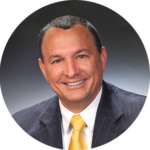“Are You 100% Sure You’re Going To Have A Great Retirement Or Do You Have Some Doubt?” is the opening tagline of Your Family Bank, one of the companies I utilize in my practice. If you’re like me, this simple question hit hard because it can encompass many different aspects of planning for retirement. Clearly, investing and long-term planning are two elements for a successful retirement. However, debt and the interest paid on that debt are the more immediate, if not more painful elements. Interest alone can rob us of precious dollars for saving and limit the amount of actual investing we do. Further, it can also rob us of the lifestyle we’d like to have. Lastly, it actually enslaves us to the financial institutions we borrow from, since we have no say in the cost of borrowing money and virtually no latitude with respect to the payment schedule.
Since we covered debt in my first post (“Explaining Debt: the nine hundred pound elephant in the room that no one wants to acknowledge”) and how the cost of that debt can rise with increasing interest rates, this post will focus on the actual banking side of debt, ie: the cost of money and how we can regain control of that cost.
Americans pay over $7,000 each year on interest and overdraft fees, which equates to 12% of the median American family annual income of approx. $59,900 (interest.com, 6/9/2020). Over an approximate forty-year time frame, that equates to $280,000 (comprised mostly of credit card, student loan and mortgage interest). Banks love the fact that we’re so comfortable with tapping them to finance our big ticket purchases and why not? For every dollar they take in of ours (savings, checking), they pay a paltry amount of interest while leveraging that dollar by loaning it out at significantly higher rates. The “spread” is the gross revenue, made at the expense of the consumer. Since this is the way most Americans have learned how to finance just about everything, is it any wonder most of us feel trapped on an endless carousel of buying/financing/paying, then doing it all over again?
Addressing this debt should be of primary importance in a low interest rate environment, but just think of the possibilities if, instead of paying the bank’s interest on future purchases, you could self-finance yourself. No more credit apps, rigid repayment schedules and, most importantly, paying yourself back with interest instead of paying the banks. This is called “opportunity cost”, since it puts you in control of using your dollars to benefit you, instead of the banks. The combination of paying off current debt in approximately half the time as your current schedule, then financing future purchases with a bank of your own gives the freedom that most Americans at present don’t enjoy.
So, the question now is, how do we employ such a system? While there are many debt payoff/banking concepts available, they can involve strict budgets (the “envelope” process), generating more income (which may encompass more hours worked) and/or stock market investing (volatility risk, capital gains). These concepts can work, but certainly have their drawbacks, such as little room in the budget for discretionary purchases (entertainment), less time spent with the family and stock market volatility (remember 2008?). A far better way is to use a concept which A.) uses the same amount of income currently generated, B.) one that is not correlated with the stock market and C.) pays interest to allow for compounding. Such a concept achieves the goals of debt payoff and big-ticket purchases while allowing for latitude and assurance against volatility.
If the concept of becoming your own bank sounds appealing to you and you’d like more information, please contact me at d.babecki@db3insuranceservices.com or give me a call at (941) 704-3134. As always, thank you for reading and let me know if I can be of service.
About David J Babecki
David Babecki is the Owner/Founder of DB3 Insurance Services and has over 20 years of experience in personal insurance, proudly protecting clients against outliving their money, stock market risk, and of course, insuring their lives against the unforeseen.
David started his career with Raymond James & Associates in 2000 before becoming an independent agent where he offers a number of services to solve client needs. David has spent the majority of his life in the beautiful Tampa Bay area where he currently resides with his family.
David is a Licensed Life Insurance Agent FL # D053146
The above article reflects the opinions and thoughts of David J. Babecki. The information contained in this material is believed to be reliable, but not guaranteed. It is for informational purposes only and is not a solicitation to buy or sell any products which may be mentioned. It is not intended to be used as the sole basis for financial decisions, nor should it be construed as advice designed to meet the particular needs of an individual’s situation.
Please note: all guarantees and/or promises are based on the claims-paying ability of the respective insurance company.




